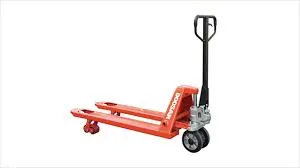


Understanding Digital Crane Scales The Essential Tool for Heavy Lifting
In industries where heavy lifting is a routine task, accuracy and safety are paramount. Enter the digital crane scale, an innovative device that has transformed the way we weigh heavy loads. This article explores the functionality, benefits, and applications of digital crane scales, underscoring their vital role in various sectors.
What is a Digital Crane Scale?
A digital crane scale is an advanced weighing device used primarily in industrial environments to measure the weight of heavy objects suspended from a crane or hoist. Unlike traditional mechanical scales, which rely on springs and levers, digital crane scales use electronic sensors to provide accurate weight measurements. This technology not only enhances precision but also offers features that improve usability, such as digital displays and remote monitoring capabilities.
Features and Benefits
One of the standout features of digital crane scales is their ease of use. With a simple hook or shackle attachment, operators can quickly weigh loads without the need for labor-intensive setup procedures. The digital readout allows for immediate results, thus speeding up operations. Many models come with large, easy-to-read displays that show weight in various units, such as kilograms or pounds, catering to international users.
Moreover, these scales often have a robust construction that can withstand harsh industrial environments. They are typically made from durable materials like stainless steel, making them resistant to corrosion and suitable for outdoor use or in facilities with high humidity levels. Additionally, many scales are equipped with overload protection to prevent damage from excessive weights, ensuring both safety and longevity.

Digital crane scales also offer advanced features such as data logging, which allows for the collection and storage of weight data over time. This is particularly useful for businesses that require detailed records for compliance, inventory management, or auditing purposes. Some models even come with wireless technology, enabling operators to monitor weights from a distance, which can be advantageous in busy workspaces.
Applications in Various Industries
The applications of digital crane scales span multiple industries, reflecting their versatility and importance. In construction, for example, these scales are essential for weighing materials like beams, steel plates, and concrete slabs. Accurate weight measurements are crucial for ensuring that lifting equipment is not overloaded, which can lead to accidents and equipment failure.
In shipping and warehousing, digital crane scales play a significant role in logistics. They help in weighing cargo containers before loading onto trucks or ships, ensuring that weight limits are adhered to. This not only enhances safety but also helps optimize transport efficiency.
Another application lies in manufacturing, where precision is crucial. Digital crane scales are used to measure components and raw materials, contributing to quality control processes. Having exact weights can influence product specifications, ensuring that manufacturing processes remain within designated tolerances.
Conclusion
Digital crane scales are indispensable tools that enhance accuracy and safety in heavy lifting operations. Their advanced technology, durability, and user-friendly features make them suitable for various industrial applications. As businesses continue to prioritize efficiency and safety, the adoption of digital crane scales is likely to grow. Investing in these scales not only facilitates smoother operations but also contributes to better compliance and management within heavy-duty environments. As we move forward into an era of technological advancement, the role of digital crane scales will remain vital in shaping the future of heavy lifting.



